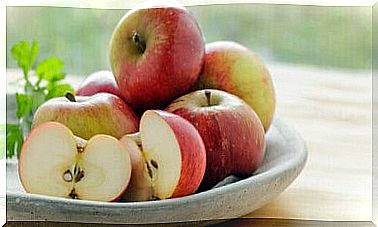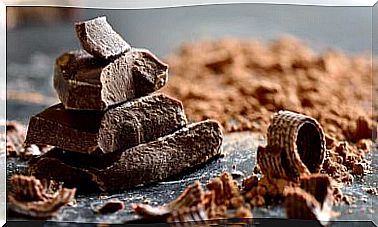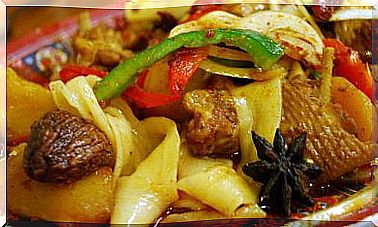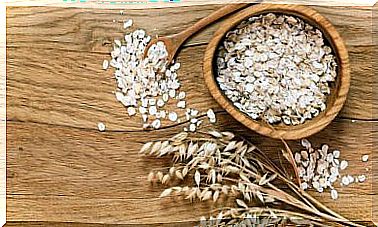6 Nutrition Lessons To Lose Weight In A Healthy Way
The problem of obesity is important because it affects a large number of people and is spread throughout the world. Today, with the studies available and the experience of the experts, some nutrition lessons can be learned to lose weight in a healthy way.
Over the last decades, the way of approaching weight loss methods and diets has changed. And since it is a problem in which many factors intervene, it is necessary to address it in a multidisciplinary way.
The Internet and social networks have become one of the most consulted means when it comes to undertaking a diet to lose weight. However, not all the information available is reliable and of high quality. Health problems can even occur due to lack of nutrients in very restrictive diets.
Nutrition aspects to take into account to lose weight in a healthy way
The key to a diet of any kind is to adapt it to the needs of each person, as there is no infallible method for everyone. In any case, some of the aspects discussed below are a starting point in all of them.
1. Know the state of health
Before starting a weight loss diet it is preferable to speak with a medical professional. With it it is possible to know the previous state of health and all the conditions that come into play in weight loss.
In addition, consulting with a dietitian or nutritionist is of great help to establish an individualized plan with which to reach the desired goals.
Short-term, realistic and comprehensive purposes are easier to achieve. Not counting on the fact that seeing results and goals achieved week after week is a source of encouragement and motivation to keep going.
Finally, it is also useful to implement changes gradually. This can avoid the feeling of anguish before the multiple novelties that the diet implies and that it becomes difficult and is abandoned.
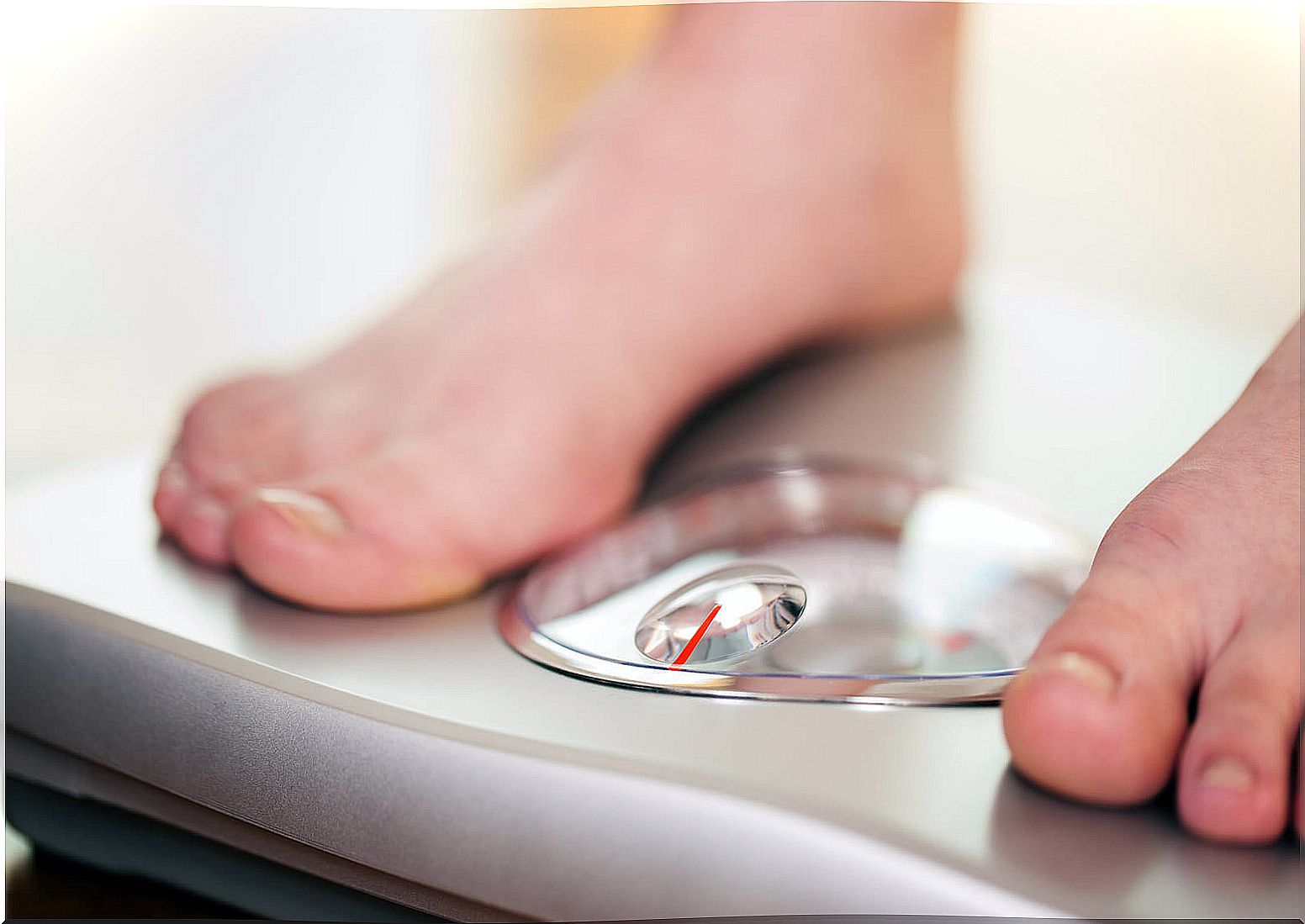
2. Achieve caloric deficit
There are many forms and types of diets, but to lose weight, the key point of all of them is to establish a caloric deficit. This is the only way the body uses its own energy reserves and the percentage of body fat is reduced.
Calories are the unit of measurement for energy obtained from food and drink. The caloric deficit is understood as the situation in which the amount of energy ingested is smaller than that which is expended.
Although one of the most effective formulas is to reduce what you eat, you should not make a drastic reduction in intake. Otherwise, there is a risk of suffering from a deficiency of essential nutrients for normal functioning.
As the United States Department of Health indicates in its “2015-2020 Dietary Guide,” plans above 1,500 calories are safe for men and, for women, the limit is 1,200.
3. Take into account macro and micronutrients
Each person has a recommended caloric intake that allows them to lose weight. This total energy must be distributed correctly among the macronutrients: proteins, carbohydrates and fats.
In weight loss, the presence of protein in the diet plays an important role for several reasons. First of all, they provide satiety and help maintain the caloric deficit. But they also prevent muscle loss and increase thermogenesis.
That is why in weight loss diets it can be interesting to increase its presence a little beyond the usual recommendations. The acceptable range is between 1.5 and 2 grams per kilogram of body weight per day. This is by choosing the sources well: preferably white meat, fish, eggs, legumes or tofu.
The rest of the calories are divided between fat (about 0.7 to 1.2 grams per kilogram of weight) and carbohydrates. In some cases, such as low carb or ketogenic diets, the carbohydrate to fat ratio may vary.
When it comes to micronutrients, the best way to cover them is by filling your meals with fruits and vegetables. These provide vitamins, minerals and fiber and their importance should not be overlooked.
4. Don’t skip meals and eat on time
Like the nutritional composition of food and its quality, the number of meals and when they are eaten is another factor to take into account to lose weight in a healthy way.
The most common hypothesis of experts is that eating small, more frequent meals improves fat loss. In addition, according to the authors of this study review, it is a theory that is supported by numerous scientific studies.
According to the International Society for Sports Nutrition, one of the benefits of not skipping meals would be the better markers of total cholesterol, LDL cholesterol, and insulin. Similarly, increasing the frequency of meals may decrease hunger and improve appetite control.
A positive meal pattern is to make breakfast, lunch, and dinner as soon as possible. Also eat two snacks mid-morning if necessary; This way you avoid arriving very hungry for the next meal.
5. Take care of the way you eat
Some daily practices related to eating can be applied to facilitate compliance with the diet and goals:
- Eat from smaller plates: This has a positive visual effect and allows you to gradually get used to smaller servings.
- Take a minimum time to eat: do it without haste and chew your food well. This helps the body to detect the feeling of fullness, but also to enjoy food.
- Do not carry out other tasks at the same time: choose quiet environments.
- Plan meals: Improvisation can lead to poor food choices. If you do not have a lot of time to cook on a day-to-day basis, choose to spend free time to advance some preparations.
6. Play sports
Being active and exercising regularly complements the rest of the nutritional lessons. It is a key point, as it helps burn calories beyond reducing intake. Without taking into account that it provides a large number of health benefits.
It is interesting to remember that caloric expenditure does not come only from physical exercise or sports. All those daily activities that involve movement (climbing stairs, walking, doing housework, not spending a lot of time sitting) also count.
A highly recommended type of exercise is strength. With this, the loss of muscle mass that can lead to a weight loss diet is prevented. In addition, it is not necessary to go to the gym, as there are many exercises that can be done at home.

Other Considerations for Healthy Weight Loss
Achieving an adequate weight is a long-term goal that focuses on many aspects. Two of the basic pillars are the caloric deficit and physical exercise.
It is also important to bear in mind that the diet must provide a minimum of energy, with the presence of the 3 main macronutrients. This without forgetting the fiber, vitamins and minerals that the body needs and that allow it to continue to function normally.
Now, there is no doubt that the diet should be based on fresh, home-cooked food whenever possible. And accompany them with other healthy habits, such as drinking water, getting enough sleep and doing good stress management.


